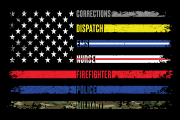It’s hard to understand addiction sometimes. It’s really hard to understand when it’s someone you care for and they are looking back at you, clearly intoxicated by whatever their favorite form of controlled dissociation is (drugs, alcohol, sex, food/not eating food, gambling), and they are again lying, again manipulating and again doing all the things we can’t stand.
It’s hard to understand addiction when a person gets help, stops those before mentioned behaviors and still struggles or relapses all together. However, it is then that we need to understand that the addiction is but a symptom. Yes, there is a huge genetic, brain, obsessive/compulsive and behavioral component to addiction but usually it’s what’s unseen that is the real force driving addictive behaviors.
I have worked with numerous men and women who stopped “using” and were left feeling anxious, depressed, bored, unsettled and all-together just-not-right. And this can often be after good treatment, meetings, “steps” and follow-up therapy! One of the biggest obstacles I’ve faced working with younger people, for example, is that their idea of fun and excitement is so skewed (being on the run, toxic relationships and narrowly escaping death and danger can become fun!) Having a steady job, a healthy relationship, solid friends and routine in their lives can feel mundane and lackluster: They go back to their active addiction as an answer to the angst within.
There is a saying in AA that there is more to quitting drinking than quitting drinking. This can be applied to any destructive behavior from binge eating to playing Call of Duty 28-hours straight! Once you remove the behavior, the person is left with the one thing they were trying so hard to escape: Themselves. This can often feel like a hopeless proposition.
Like most, I grew up watching Robin Williams and I thought he was magnificent! In the weeks to come there will be much speculation and perhaps even correlation drawn between his addiction, his recent trip back into treatment and his subsequent suicide. This may be very much the case, but my hope is that we as a society don’t miss the point. The surface can be all fine and dandy but the underneath can tell a different story. Robin Williams was seen as a beacon of joy, laughter and vitality! Yet despite what we saw he struggled with depression and despite doing all the right things as far as his sobriety was concerned, it continued to plague him.
What lies underneath the surface is often the really frightening part to address. Whether it is depression, grief or unresolved trauma, there is so much hope and so many amazing resources out there, regardless of ones financial and social standing, and people are usually unaware that they even exist!
We are the only creatures on this planet that shops for yoga mats, apply for loans, worry about said loans and fall in love with figures we’ve likely never met. That’s bound to make us more complex than one good treatment episode and some follow-up care can handle! Like an onion we often need to peel away the layers, one at a time before we get to the core of our being and truly understand the problem. Some of us need a bit more peeling. I know I did.
So my hope would be that this new tragedy may give strength to us all that there is nothing wrong with having problems, needing help and getting help. That there is nothing wrong with wanting to be better than “fine.” We can have the world at our fingers and still need help and support and that does not mean we are weak or beyond help-it simply means we are beautifully complex humans.



